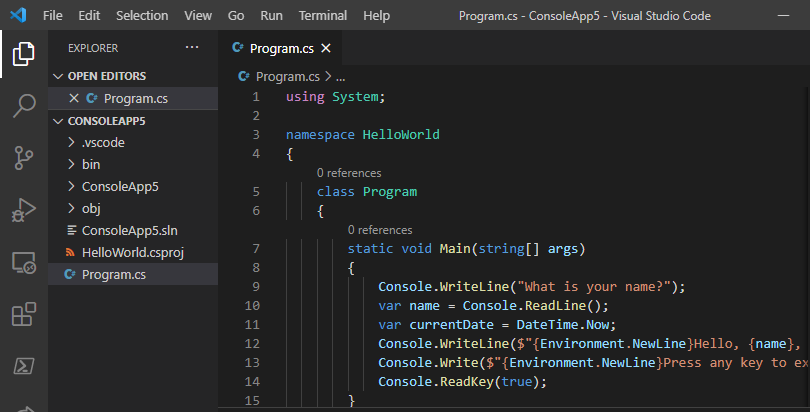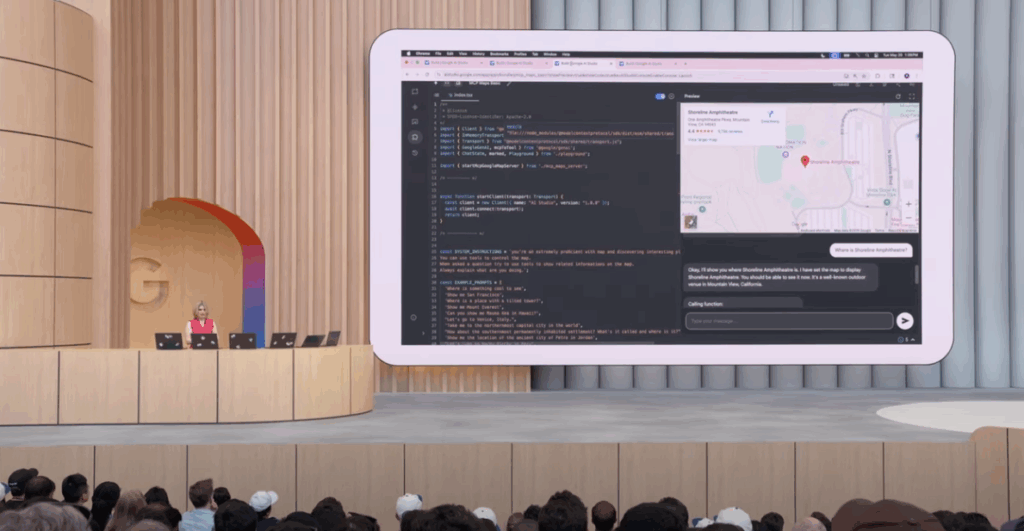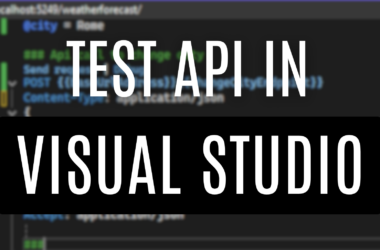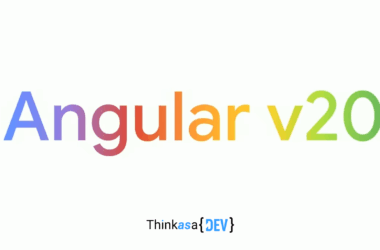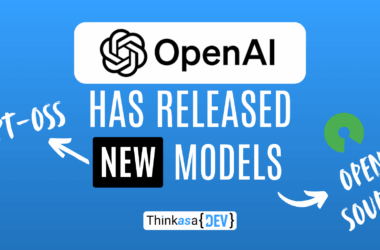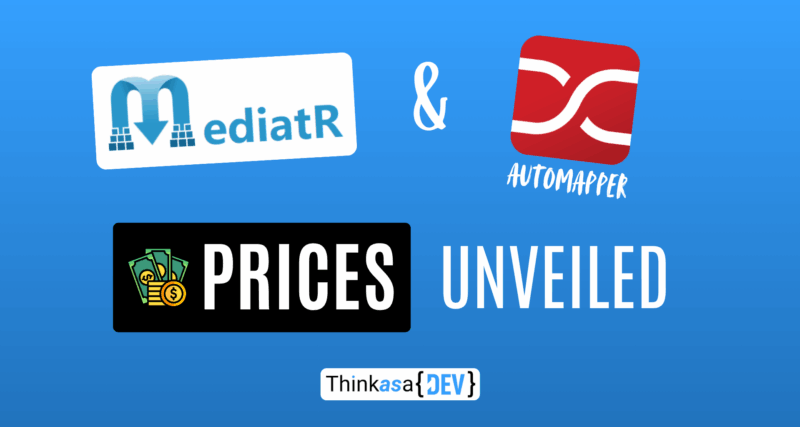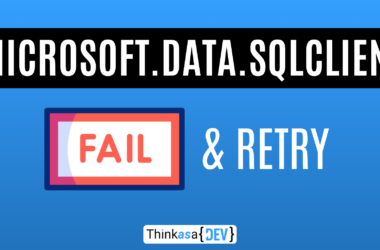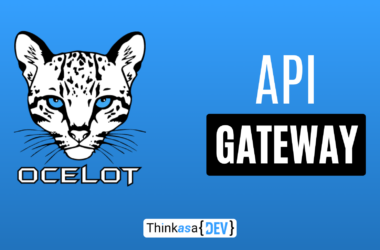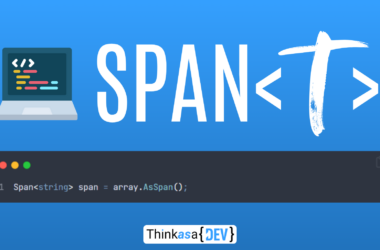Hey everyone, today we’re talking about news that has “shaken” the .NET developer world. A few months ago, Jimmy Bogard (the author of two popular .NET libraries, MediatR and AutoMapper) announced that his libraries would become paid products to ensure long-term sustainability. We’ve been waiting to see what the pricing would look like, and now we finally have our answer. No spoilers in this preface — let’s dive in! 😉
MediatR
What It Is
MediatR is a .NET library that enables decoupling of communication between application components, acting as an “intermediary” in contexts where Vertical slicing or CQRS (Command-Query Responsibility Segregation) pattern is used.
It’s (was) a very popular open-source library that has been widely adopted in many projects over the years, including enterprise applications.
One of its key strengths was the pipeline mechanism that allowed adding common application logic through handlers, reducing repetitive code and managing complex scenarios with generic constraints. For example, you could add middleware to handle permissions.
Other strengths include its simple configuration and the vast amount of literature and use cases available, given how widely the library has been adopted.
Pricing
Let’s get to the painful part—how much does it cost? The pricing is available here and is divided between monthly and annual plans. In my opinion, they’re a bit too high, and I would have expected to find some kind of “lifetime” license tied to a specific product version, which is missing.

Another painful point is that when you purchase the license, you’ll be provided with a code that expires annually. This is an extremely negative aspect, meaning that every year all the applications we’ve built will need to be “updated” by changing the license code (considering that one license can be used across unlimited projects). What happens if we’re late updating it? Will the application stop working? We don’t know yet. What is specified is that warning lines will appear in the logs alerting about an invalid/expired license (the entire library validation mechanism is self-contained—no validation server is currently planned).
Also pay attention to the number of developers: licenses are based on the total number of developers a company has, but you also need to consider external consultants who collaborate—they also count toward the team total.
The library will be downloaded via NuGet (the site also mentions that a private NuGet channel will be available). Additionally, we’ll have access to a Discord channel (I imagine for support) and access to all new versions of the library.
When You Don’t Need to Pay for a License
The license will only apply to new versions of the product going forward—all previous versions of the library remain open source and freely usable. You can choose to keep the library and not update it, but honestly, I don’t think this is a viable path, especially considering the European Cyber Resilient Act, which comes into effect in 2027.
However, there is a free “community” version available for companies/individuals who don’t have annual revenue exceeding $5 million or for open-source/non-profit projects with annual budgets under $5 million.
Alternatives
Each of us and every company will evaluate whether the price is fair or not, but let’s try to understand what the alternatives are.
First, you need to start with the application’s complexity level: a complex application with more or less structured pipelines and various middleware will certainly be more difficult to replace with another product. If you’re only using MediatR to “simply” manage the CQRS pattern within your application, then you can replace everything more “easily.”
Some libraries that could become alternatives and that I’ve heard about are Cortex.Mediator (git) or Lite Bus (https://github.com/litenova/LiteBus), both projects that implement these patterns. There are surely many others—the alternative should be chosen based on your application’s complexity level.
AutoMapper
What It Is
It’s hard not to have heard of AutoMapper, a .NET library that automates mapping between objects of different types, eliminating the need to manually write code to map properties between two classes. Born with the advent of the MVC pattern, where mapping between DTOs and View Models was substantial, it has gained significant popularity over the years.
Pricing
Since the author is the same as MediatR, the pricing policies are identical to what was written for MediatR.

Alternatives
Nowadays we have tools like Copilot, ChatGPT, Claude, etc. Do we really need a library like this? From my perspective, it’s much simpler to replace this compared to MediatR. Of course, everything depends on the project’s complexity and the number of classes and mappings implemented, but compared to the past, today we have AI support to help us write boring and repetitive code, which somewhat “justifies” the use of this library less.
Conclusions
Jimmy Bogard’s decision to make MediatR and AutoMapper paid products marks a significant turning point for the .NET ecosystem—we knew this day would come… And here we are! While it’s understandable that there’s a need to ensure economic sustainability for open-source projects, the proposed pricing and annual license model could prove burdensome for many companies, especially smaller ones.
The choice to keep only previous versions free puts developers in a dilemma: continue using outdated versions (with obvious security risks, especially considering the European Cyber Resilient Act), invest in licenses, or evaluate migration to an alternative?
This change reminds us of the importance of not depending excessively on external libraries—decoupling and project architecture quality really show in cases like these.
All that’s left is to wish you happy refactoring!
Until next time!



